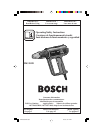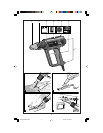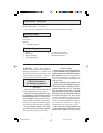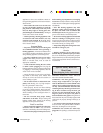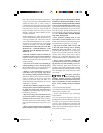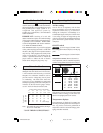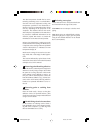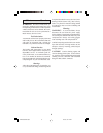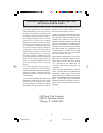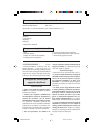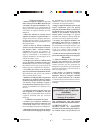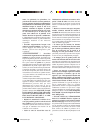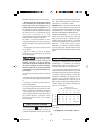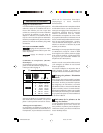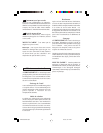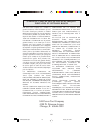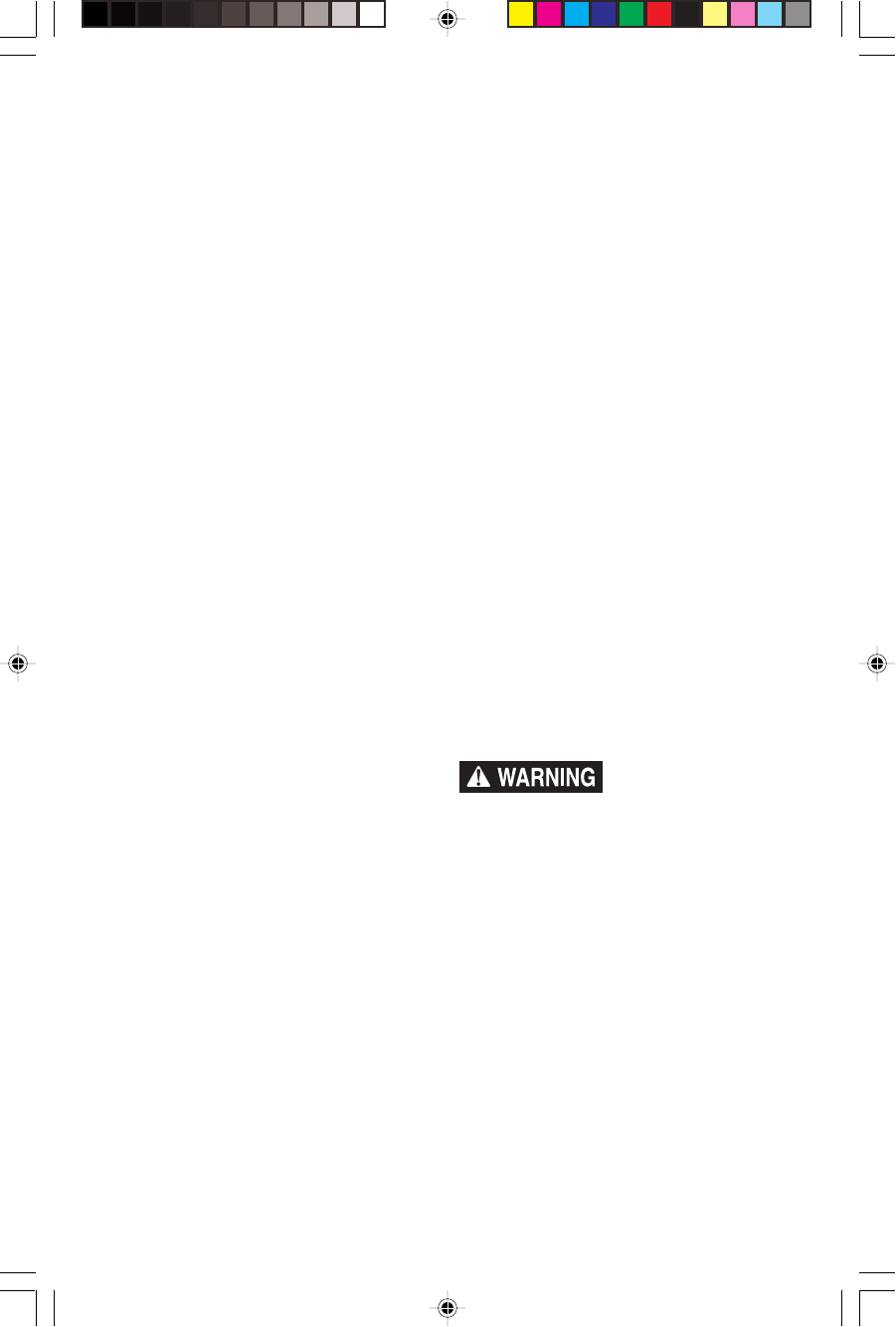
5
been approved by the Occupational Health
and Safety Administration (OSHA), the Na-
tional Institute of Safety and Health (NIOSH)
or the United States Bureau of Mines. These
types of masks and replaceable filters are readily
available at major hardware stores. Be sure the
mask fits securely, beards and facial hair may
keep masks from sealing properly. Change fil-
ters often. DISPOSABLE PAPER MASKS
ARE NOT ADEQUATE.
• Wear protective clothing such as extra
work shirts, overalls and hats. Paint residue
or dust may settle on your skin which may cause
the transmission of poisons to your body.
• DO NOT SWEEP, DRY DUST OR
VACUUM paint shavings, dust or peelings
during the clean up process. Clean up all
removed paint and dust by wet mopping the
floors. Use a wet cloth to clean all walls, sills
and any other surface where paint or dust is
clinging. Use a phosphate detergent or triso-
dium phosphate (TSP) to wash and mop areas.
• Always remove protective clothing and
work shoes in the work area to avoid carry-
ing dust into rest of the dwelling. Wash work
clothes separately. Wipe shoes off with a wet
rag that is then washed with the work clothes.
Wash hair and body including hands, arms and
face thoroughly with soap and water. Rinse
your mouth
Some dust created by
power sanding, sawing,
grinding, drilling, and other construction
activities contains chemicals known to cause
cancer, birth defects or other reproductive
harm. Some examples of these chemicals
are:
• Lead from lead-based paints,
• Crystalline silica from bricks and cement and
other masonry products, and
• Arsenic and chromium from chemically
treated lumber.
Your risk from these exposures varies, de-
pending on how often you do this type of work.
To reduce your exposure to these chemicals:
work in a well ventilated area, and work with
approved safety equipment, such as those dust
masks that are specially designed to filter out
microscopic particles.
paint may contain lead, which is poisonous.
Any pre-1977 paint may contain lead and paint
applied to homes prior to 1950 is likely to
contain lead. Once deposited on surfaces, hand
to mouth contact can result in the ingestion of
lead. Exposure to even low levels of lead can
cause irreversible brain and nervous system
damage; young and unborn children are par-
ticularly vulnerable.
Before beginning any paint removal process
you should determine whether the paint you are
removing contains lead. This can be done by
your local health department or by a profes-
sional who uses a paint analyzer to check lead
content of the paint to be removed. LEAD-
BASED PAINT SHOULD ONLY BE RE-
MOVED BY A PROFESSIONAL AND
SHOULD NOT BE REMOVED USING A
HEAT GUN.
• Move the workpiece outdoors. If this is not
possible, keep the work area well ventilated.
Open the windows and put an exhaust fan in one
of them. Be sure the fan is moving the air from
inside to outside.
• Seal work areas from rest of dwelling by
sealing openings or doors with drop cloths.
Work in limited areas or one room at a time will
help to limit paint or dust contamination.
• Remove or place furnishings in center of
room then cover any carpets, rugs, furni-
ture, clothing, cooking utensils and air ducts.
Place drop cloths in the work area to catch paint
chips or peelings, at the end of each work
session put the paint chips and debris in a
double plastic bag, close it with tape or twist ties
and dispose of properly.
• Do not allow children, pregnant or poten-
tially pregnant women and nursing mothers
in work area until work and clean up is
complete. Certain individuals may be at risk, if
not properly protected.
• Do not eat or keep food and drink in work
area. Do not smoke or chew gum or tobacco
products in the work area. Paint residue or
dust may settle on or in food containers which
can cause the transmission of poisons to your
body.
• Wear a dust respirator mask or dual filter
(dust and fume) respirator mask which has
BM 2610910610 9/01 10/4/01, 10:12 AM5



